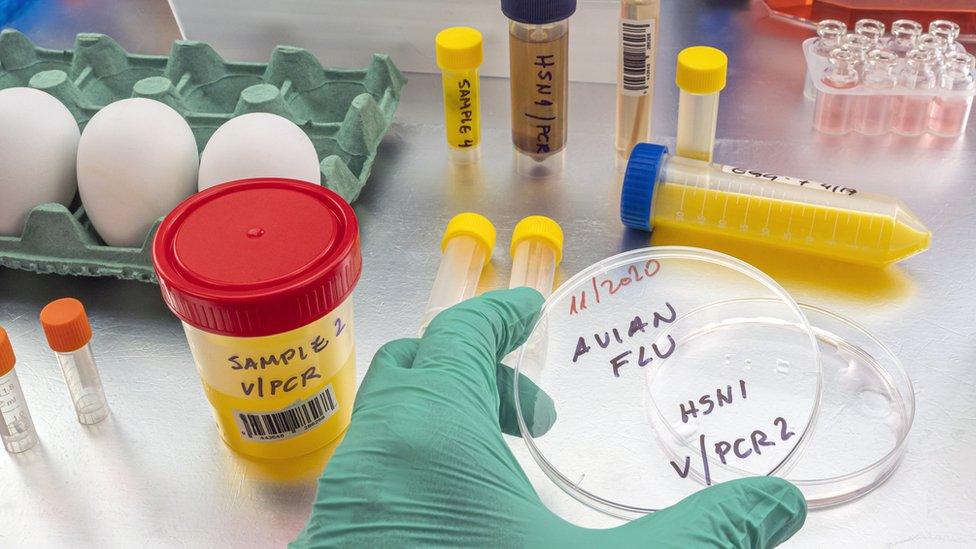Solway Coast bird flu death numbers 'unprecedented'
- Published
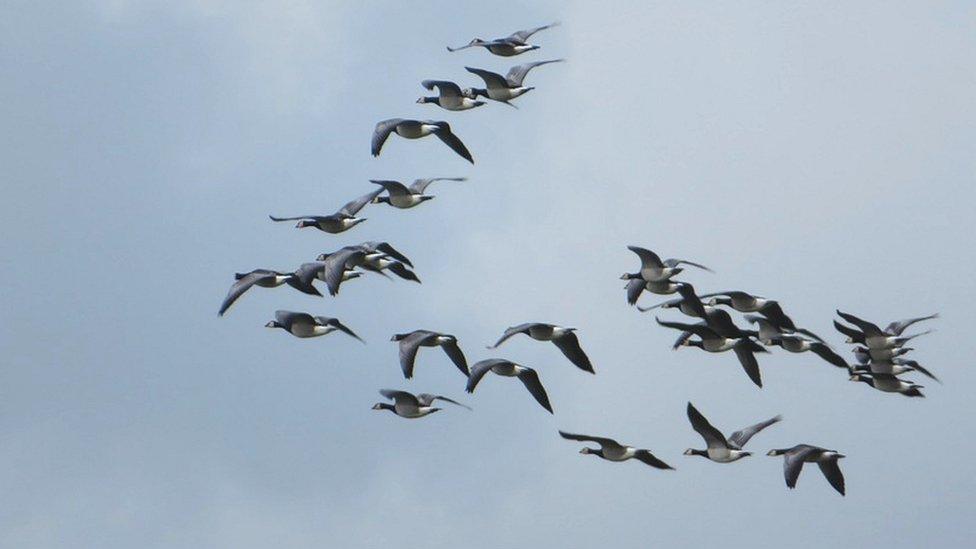
The arrival of the geese in south west Scotland is a spectacular sight
This story contains images that some people may find distressing.
The arrival of barnacle geese on the Solway Coast in south west Scotland is usually something to be celebrated.
There is even a festival held in honour of their migratory journey from Svalbard, north of the Arctic Circle.
Visitors head to spots along the Dumfries and Galloway coast to see the spectacular site of the tens of thousands of birds.
This year, however, avian flu has already killed thousands of geese who have made it to Scottish shores.
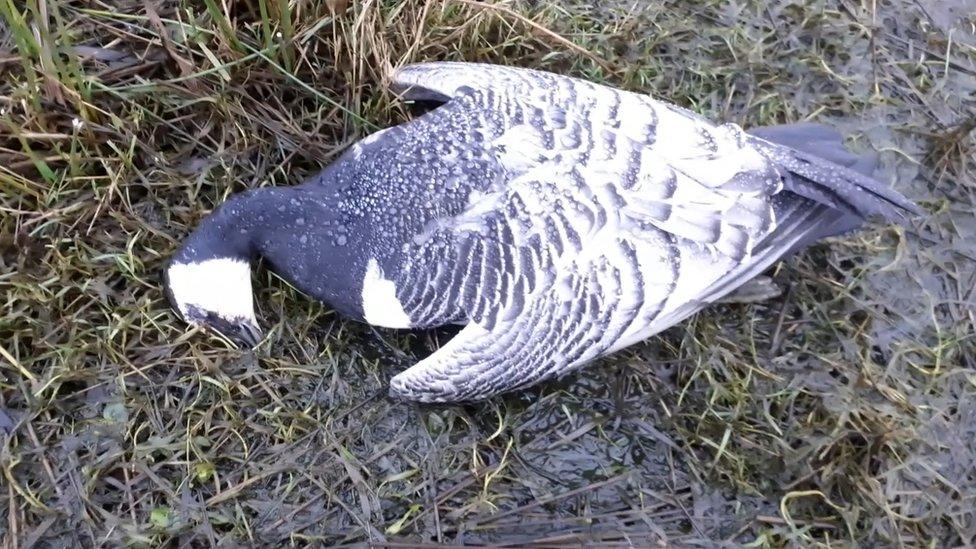
Thousands of birds have died along the Solway Coast - many of them barnacle geese
Andrew Bielinski, the RSPB area manager for the Scottish Lowlands and Southern Uplands, said he had never seen anything on this scale before.
Their reserve at Mersehead - about 18 miles from Dumfries - has been particularly badly affected.
"It is pretty significant," he said.
"We did a count of dead birds on the Mersehead just last Friday which had 744 dead birds, most of which were barnacle geese.
"Previously we had picked up something like 120."
He said that meant the figure along the length of the Solway Coast would be much higher.
"We are probably approaching 4,000 - certainly over 3,000 - mostly barnacle geese," he estimated.
"It is pretty large scale and it is likely to get worse.
"It is unprecedented, I have worked in the area for 25 years and I don't ever remember us seeing this many birds dying."
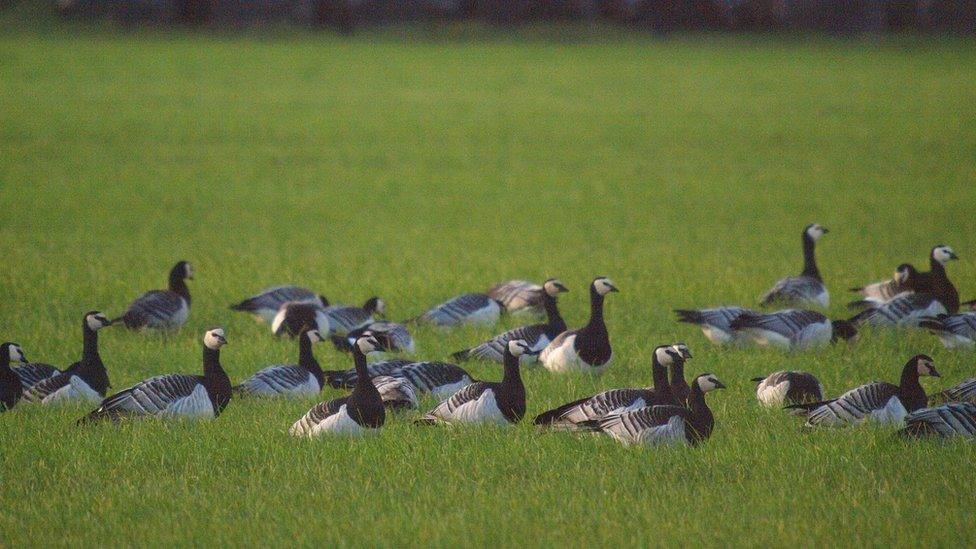
The number of birds dying during their winter on the reserve is usually much lower
In a normal year, he said, you would get a few birds dying but now the sight of dead geese "dotted around" has become commonplace.
He said it was not difficult to spot an affected bird - as he did during a recent visit.
"If a bird can look distressed, it looked distressed," he said.
"It is quite distressing for staff and visitors on the reserve.
"We have been collecting the birds because it is not really what we want our visitors to see - lots of dead barnacle geese around the place."

The Wildfowl and Wetlands Trust (WWT) has seen similar scenes at its Caerlaverock site - a few miles further east.
It said it was "extremely concerned" about the recent deaths of barnacle geese and their potential impact on a population it had spent "many years protecting" and for which the site itself was established.
"We are working closely with local partners to identify what measures we can take to reduce the impacts on these birds while this outbreak continues," it said in a statement.
"At our Caerlaverock Wetland Centre, we are taking relevant measures to help minimise the spread of this disease of birds, in line with government requirements, and to help the birds at this time."

Timeline: Avian flu in south west Scotland 2021
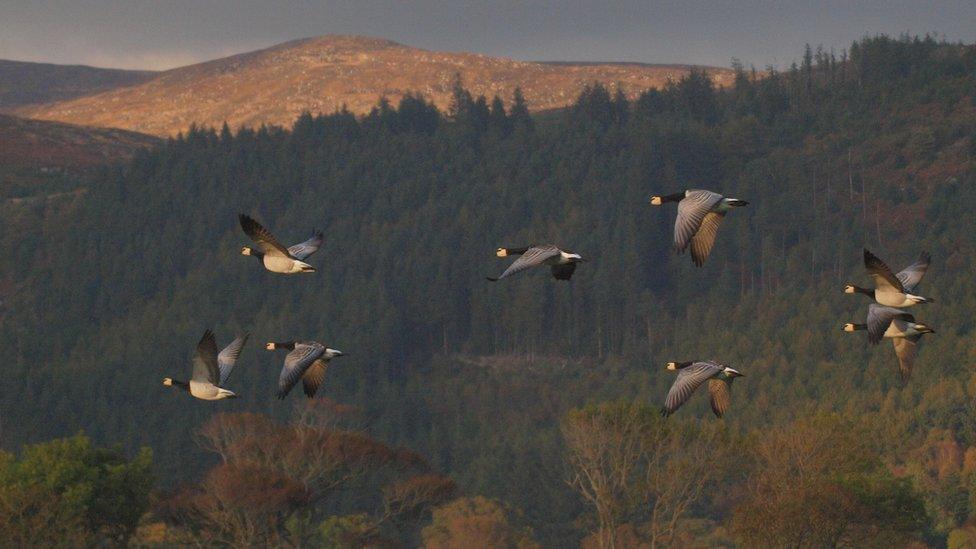
RSPB Scotland has warned that outbreaks could get "even more severe"
19 November - The public is asked to avoid interacting with wild birds on the Solway Coast after a case is confirmed in a swan
3 December - Cases are found in premises near Gretna, resulting in a cull of 22,000 hens
9 December - Another outbreak is confirmed near Annan, followed by a third near Moffat the following day. Scotland's chief veterinary officer Sheila Voas says it is the "worst year on record" for the disease.
14 December - RSPB Scotland warns the situation could get "even more severe" with thousands of wild birds already dead

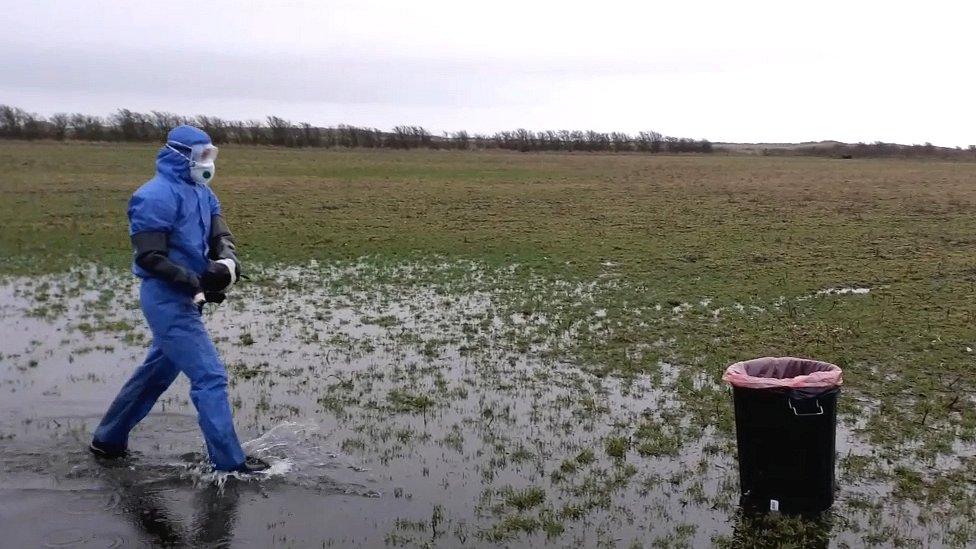
Staff wearing PPE gather the dead birds before they are taken away by specialists
At the RSPB Mersehead site, the collection process involves staff donning personal protective equipment (PPE) as, although the health risk to humans is said to be low, the public is advised not to touch dead or dying birds.
Once gathered the birds are taken away by specialists for disposal with a small sample checked to confirm avian flu as the cause of death.
Mr Bielinski said it was hard to witness - especially at a place where people were normally visiting to see the "wildlife spectacle" the birds provide.
However, he said there was only so much they could do to protect any healthy wild birds from catching the disease.
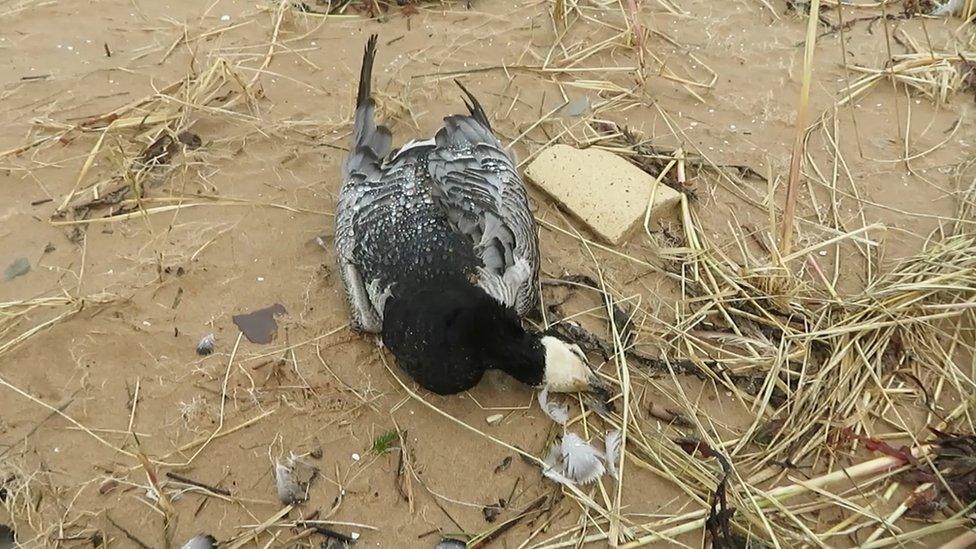
Tests carried out on a sample of dead birds have confirmed avian flu as the cause
Commercial and "back yard" flocks have been under tight avian flu prevention measures across Great Britain since last month.
As part of that all keepers must house their birds indoors to try to limit the spread of the disease but that is simply not an option with the wild geese.
"We couldn't catch them all and keep them anyway - there are 34,000 to 35,000 of them on the Solway at the moment," said Mr Bielinski.
"You couldn't catch them all - and if you could catch them where would you put them?
"You just have to let nature take its course, unfortunately, as hard as that is."
Related topics
- Published15 December 2021
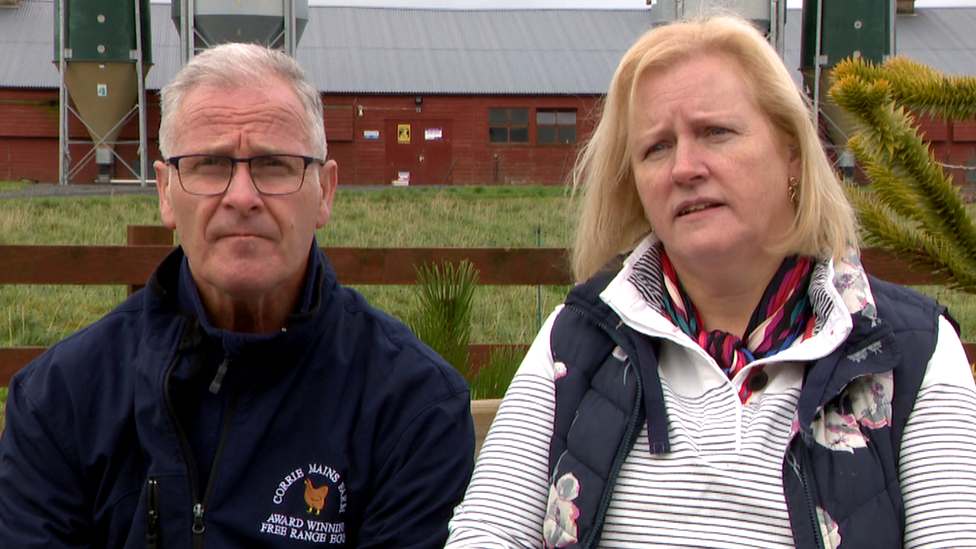
- Published10 December 2021
